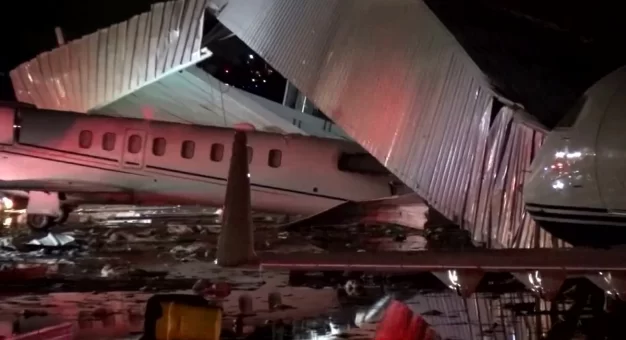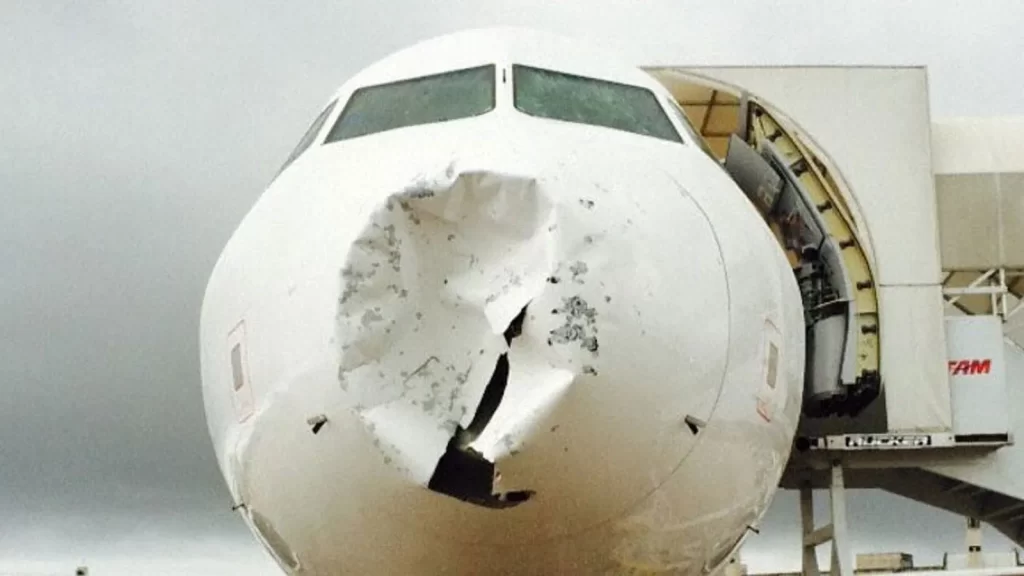
What is Hangarkeeper Insurance?
When It’s Needed — What You Need to Know
About the Aircraft Hangar
A typical aircraft hangar is an indispensable facility used for the safe and secure storage, repair, maintenance, and protection of highly valued aircraft. These essential structures serve several key functions, including safeguarding an airplane from elements like rain, snow, and extreme temperatures, all of which can cause wear and tear on the exterior, interior, and critical components of an aircraft. Hangars also create a climate-controlled environment for routine maintenance, inspections, and repairs, ensuring aircraft are well-maintained, airworthy, and able to meet stringent safety standards.
Fast and Efficient Turnaround of Aircraft
Airplane hangars offer a safe and secure space to store high-price-tag aircraft, protecting them from theft, vandalism, or accidental damage. The space is also useful for logistical operations, including fueling, cleaning, and equipment storage. For commercial airlines and military operations, hangars are necessary for the fast and efficient turnaround of aircraft, reducing downtime and ensuring timely flight operations. These structures are a vital resource for maintaining the longevity, safety, and operational readiness of today’s modern aircraft. However, in terms of protecting aircraft, more is needed.
Significant Financial Burden
Equally important is aircraft owner insurance. It is a tool used in protecting both an aircraft and its owner from the financial risks related to accidents, damage, or liability. Without the right kind of coverage, an owner will likely face significant financial burdens from repair costs, legal fees, or claims for injury or property damage caused by an accident. A quality insurance product provides peace of mind by protecting from a range of potential incidents, including physical damage to the aircraft and third-party liability. It also protects against losses due to natural disasters.
What About Claims Handling?
In addition to covering damages, airplane ownership insurance offers access to expert claims handling, which can streamline the process in times of crisis. It may include additional benefits like legal defense, medical coverage for passengers, and coverage for temporary replacement aircraft during repairs. Ultimately, comprehensive aircraft owner insurance minimizes financial risk, enhances operational safety, and protects an aircraft owner’s investment, ensuring that any unforeseen events are handled in the best way possible.
What About Hangarkeeper Insurance?
Hangarkeeper insurance is a unique type of aviation liability insurance used to protect aircraft owners, operators, and businesses that provide hangar storage or maintenance services for aircraft. It is intended to cover the liability a hangar owner or operator may face if an aircraft in their care, custody, or control is damaged, destroyed, or lost while stored or being worked on. Hangarkeeper insurance is particularly important for fixed-base operators (FBOs), maintenance shops, or aircraft storage facilities, as it covers incidents that may not be directly caused by the facility’s negligence but could still result in significant financial loss.
What If a Third Party Sues For Damages?
This specialized kind of aviation-related insurance typically includes coverage for damage to an aircraft caused by fire, theft, vandalism, or accidental events and can cover legal expenses if a third party sues for damages. It does not typically cover damage to the hangar itself or the aircraft owner’s plane; those are addressed through the aircraft insurance policies mentioned above. This coverage is essential for businesses managing aircraft storage and maintenance facilities.
A Vested Interest in Airplanes and Equipment
The right kind of insurance for hangarkeepers is important because it protects all the aircraft and equipment in what is a rather unique space. Those managing and maintaining a hangar where aircraft and equipment are stored should work with those experienced in the finer details of this type of insuring products, as being under-insured or uninsured can spell financial disaster for those with a significant, vested interest in airplanes and equipment. An experienced underwriter is always recommended.
A Trusted Source
Note that hangerkeepers and liability insurance are two very different products. Where general liability may sometimes include hangarkeeper’s insurance, this is not always the case. Again, working with a trusted source for this kind of financial product is the smartest choice. Aviation general liability or public liability insurance typically covers third-party property that has been damaged. This includes injury to people like passengers, crew, and others.
Physical Damage to Aircraft and Equipment
The main takeaway regarding the hangarkeeper’s policy is that it is, again, intended to cover the costs of any type of damage to property under the owner’s care that belongs to others. This often includes any physical damage to aircraft and equipment that are stored within the hangar or undergoing repairs, loss of use, market value reduction, and even the liability associated with moving, refueling, or repairing an aircraft stored in a hangar.
Buildings Where Aircraft and Aviation Equipment are Stored
Avionics shops, fixed base operators, and hangar owners, as well as aircraft detailers and airport authorities, are all best served by having the right kind of comprehensive insurance for hangarkeepers. In fact, any building where aircraft and aviation equipment is stored or repaired needs some kind of robust insurance policy. Anytime an aircraft is hangaring on a property in any capacity, it should be covered with a robust policy.
Depreciation in Value
Keep in mind that once an aircraft has been involved in an incident or accident, its market value may drop substantially. This liability will, in most instances, fall upon the hangarkeeper where the damage happened, regardless of who caused the damage or injury. Hangarkeeper’s liability products help to offset depreciation depending on what occurs following and accident or incident and determines how much is to be paid to the benefactor.
Loss of Use Considerations
When an aircraft is damaged in a hangar or on liable property, it must be repaired to be in safe flying condition once again. Owners and operators are usually liable for covering the expense of providing a replacement aircraft while repairs are underway. The affected aircraft owner may need to charter a replacement airplane for a long period of time while aircraft repairs are taking place. A good hangarkeeper’s policy will offset these costs.
Policy Premiums for Aviation-Related Insurance
The aviation insurance underwriter is a knowledge expert who evaluates and assesses the risks involved with insuring an aircraft, pilots, and other aviation professionals. Their core role is to determine insurance terms, coverage limits, and policy premiums for aviation related insurance. They are tasked with analyzing factors including the type of aircraft, its usage (private, commercial, cargo), pilot experience levels, and the overall safety record of those wishing to be covered.
Underwriters Deliver Professional Guidance
Underwriters in aviation assist aircraft owners and operators by providing them with appropriate coverage tailored to their exact needs. They are instrumental in mitigating financial risks surrounding accidents, damage, or liability claims through comprehensive insurance offerings. By knowing aviation industry risks and trends, underwriters deliver professional guidance on policy options that best protect against potential losses, delivering greater peace of mind. They optimize insurance costs, making sure that coverage is always adequate and financially manageable.
Discover Aviation Property Network
Locating an aviation property or hangar attached property is easy with help from APN (Aviation Property Network). The company features dedicated and experienced aviation real estate professionals that assist both buyers and sellers.
APN helps you list a property for sale, lease an aviation property, or rent overnight. The company website boasts a large international database of aviation real estate opportunities. From raw aviation land to airport businesses and live-work style airplane hangars, APN has all aviation property investments under one unique roof.
Interested in buying or selling an aircraft hangar, moving to an airpark fly-in community, buying or selling an FBO, or perhaps even developing a new aviation-related project? Work with a true leader in world-wide aviation property transactions today! Contact APN NOW!
